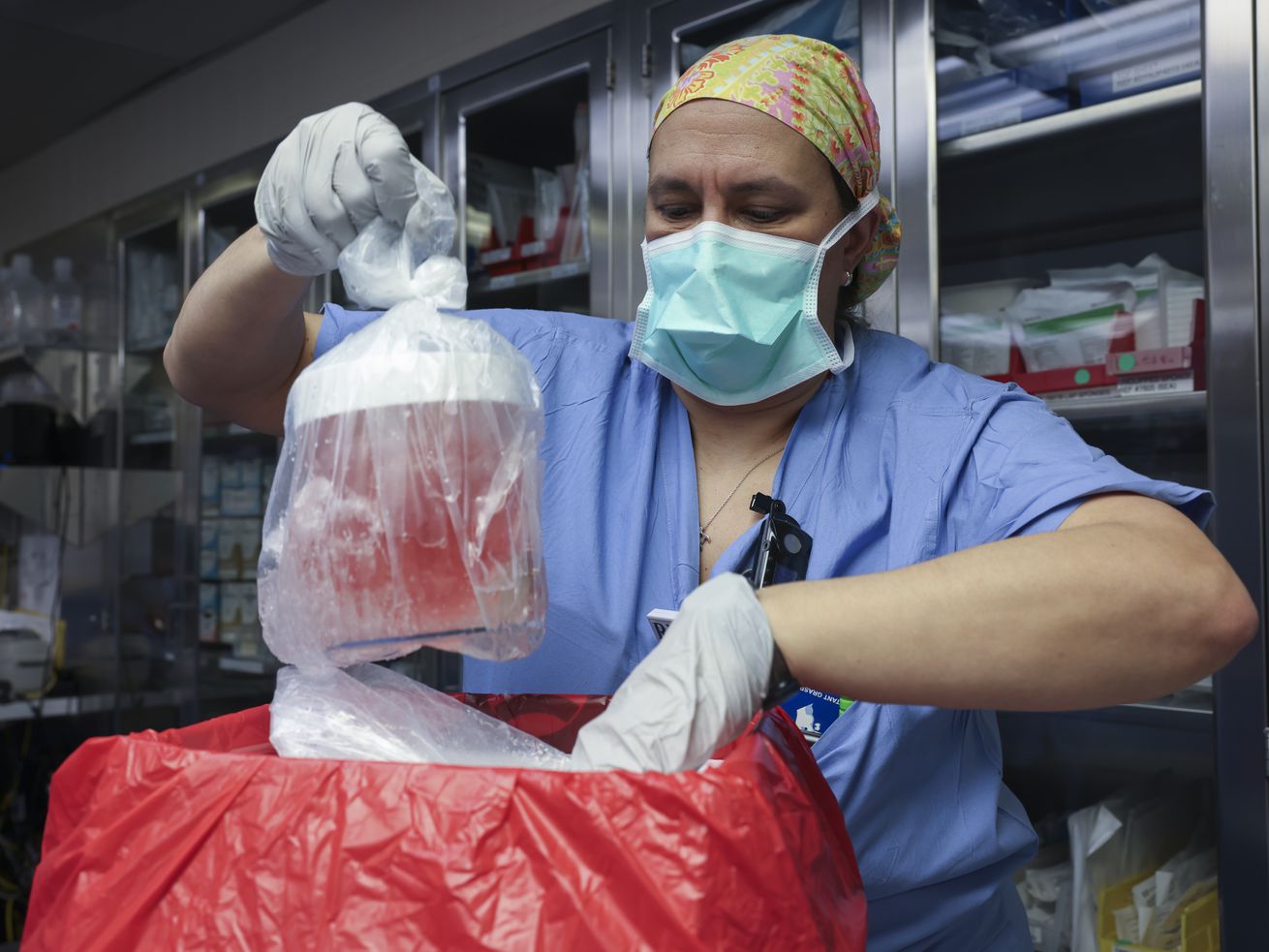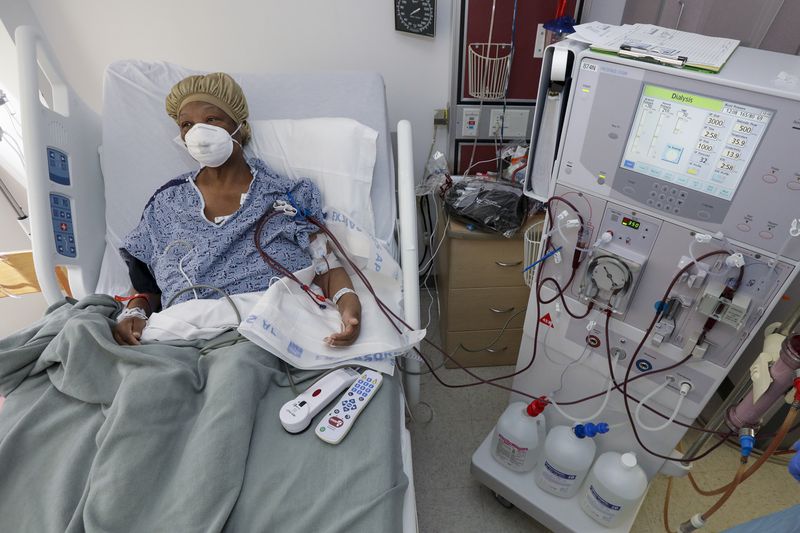April 2, 2024:

We eat pigs. Do we need them to process our urine too?
No one tells you, when you donate your kidney, that from that point on you’re a Kidney Guy.
When kidney things happen in the news, everyone you know will text you. When a friend of a friend is diagnosed with kidney failure, as about 136,000 Americans were in 2021, you’ll hear about it. When acquaintances are thinking about donating, you’ll get a call.
It’s been nearly eight years since I donated mine in 2016, and my Kidney Guy status has not faded.
The flurry of kidney texts started anew at the end of March when researchers at Massachusetts General Hospital in Boston announced that they had transplanted a kidney from a genetically engineered pig into a living human for the first time.
They weren’t the first to try something like this. In 2021, researchers at NYU conducted the first pig kidney (or “pigney”) donation to a brain-dead patient, finding that the transplant took and the kidney was producing urine, the way kidneys should. They also used a genetically engineered pig to reduce the odds that the human immune system would reject the organ. In 2023, the NYU team repeated the experiment and found that a pigney could last for over two months.
But the Mass General researchers went a step further when they transplanted a pigney into Rick Slayman, a 62-year-old Weymouth, Massachusetts, man who was very much alive. He luckily remains alive as of this writing and is producing urine through the piece of pork that some doctors put in him.
This is unquestionably good news for Slayman, and while routine pig kidney transplants are still a few years off, it’s obviously good for people with kidney failure to have more options.
We shouldn’t let the news distract us, however, from an uncomfortable fact: Humans could, if we wanted to, end the kidney shortage right now without any assistance from our porcine friends.
The Mass General announcement is big news for one simple reason: Not enough humans are donating their kidneys.
While some 135,972 Americans were diagnosed in 2021 with end-stage renal disease, a condition that you need either dialysis or a transplant to survive, only 25,549 transplants took place that year. The remaining 110,000 people needed to rely on dialysis.
Dialysis is a miraculous technology, but compared to transplants, it’s awful. Over 60 percent of patients who started traditional dialysis in 2017 were dead by 2022. Of patients diagnosed with kidney failure in 2017 who subsequently got a transplant from a living donor, only 13 percent were dead five years later.
Life on dialysis is also dreadful to experience. It usually requires thrice-weekly four-hour sessions sitting by a machine, having your blood processed. You can’t travel for any real length of time, since you have to be close to the machine. More critically, even part-time work is difficult because dialysis is physically extremely draining.
Pigneys are exciting because they represent the possibility of a world where dialysis is a relic, like iron lungs for polio.
There’s still a ways to go before this future is realized. Technically, pigneys aren’t even in the clinical trial stage — to date, experiments have been allowed under “compassionate use” rules, and those participating have either been already dead or without any other option for survival. Researchers will need years to conduct formal trials and evaluate the approach for safety and complications.
But these early indications are promising, and logistically, it would be feasible.
We can easily have farms breed 68,000 pigs a year, each giving its kidneys to two deserving human recipients as soon as they’re diagnosed with kidney failure. The US has 75 million pigs alive now for meat production; a few dozen thousand more for transplantation is a drop in the bucket.

But there’s something sad to me about the pigney moment, too.
Partly this is because I’m an animal lover who thinks there’s something wrong with killing pigs, which are intelligent animals capable of tasks like playing video games, for meat.
And while I argue there’s obviously less wrong with killing them to harvest lifesaving organs, it seems like a necessary evil at best. Maybe we’ll take one kidney each from the pigs and then send them off to live on a beautiful farm, but I have my doubts.
The bigger issue is that we should not have to rely on pigs at all.
There are more than enough human beings walking around with spare kidneys who could donate them to strangers in need. They simply choose not to.
Getting 136,000 human kidneys for transplant every year in the US is very possible.
We can make up part of the gap by collecting more organs from deceased patients. Organ procurement organizations, which distribute organs from dead people, have been very conservative about which organs they’ll use; federal agencies are now investigating them for fraud. There are likely thousands more organs we could be recovering every year by reforming these groups — but not enough to wipe out the kidney backlog.
We can’t rely on dead people, or pigs, to close the kidney gap in the near term. We need living people.
We could do more to encourage donations. Going through a nephrectomy is real work, and it deserves compensation. Many kidney donors have rallied behind a proposal to give a $10,000-a-year tax credit for every donor for five years, to make up for lost wages and other costs incurred due to donating. This would go a long way toward filling the shortage
But that kind of policy change will take time as well.
In the meantime, we could eliminate the backlog, this year, if a tiny share of adult Americans agreed to donate their kidney to someone who needs one. Not everyone is eligible, but far more than most people think are. Maybe a friend of yours could. Maybe a family member. Maybe you.
This story appeared originally in Today, Explained, Vox’s flagship daily newsletter. Sign up here for future editions.